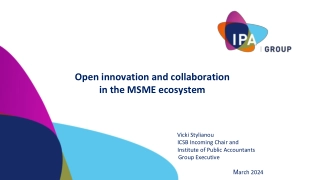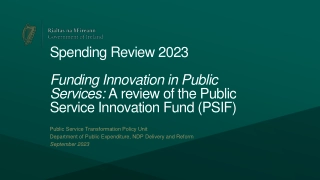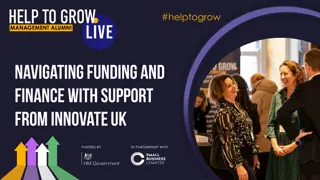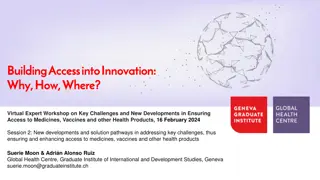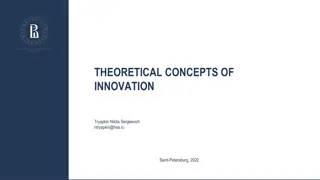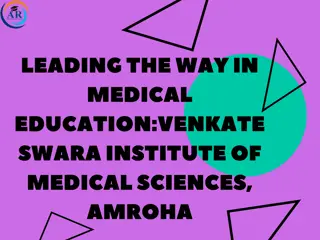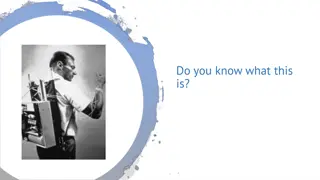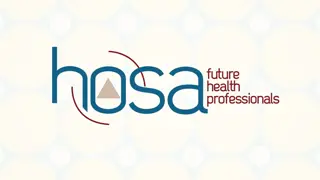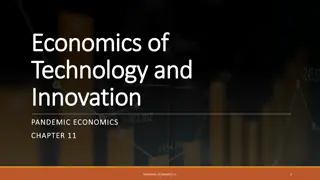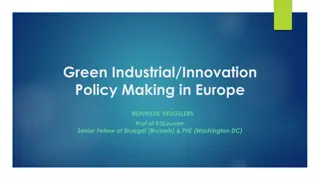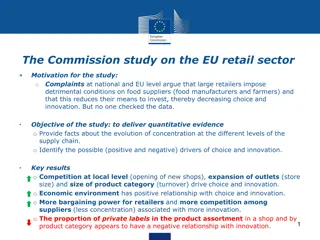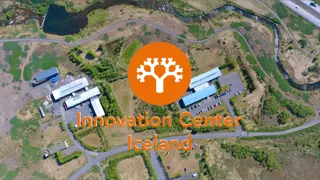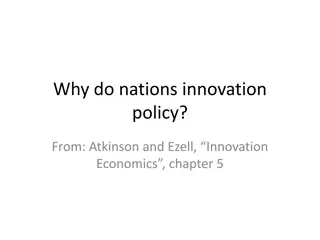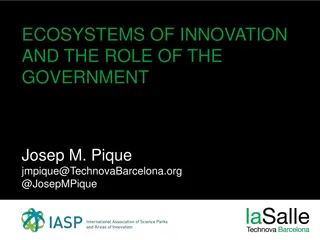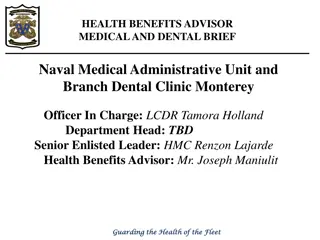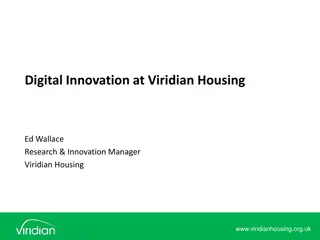Future of Medical Innovation and Access for People in Need
Challenges in accessing affordable medicines persist due to high prices and pharmaceutical monopolies. The need for change is emphasized by the Access Campaign, advocating for ending patent abuse, promoting R&D responsibility, and debunking myths around medicine pricing. Global momentum is sought to address this issue and ensure access to life-saving treatments worldwide.
Download Presentation

Please find below an Image/Link to download the presentation.
The content on the website is provided AS IS for your information and personal use only. It may not be sold, licensed, or shared on other websites without obtaining consent from the author. Download presentation by click this link. If you encounter any issues during the download, it is possible that the publisher has removed the file from their server.
E N D
Presentation Transcript
Access Campaign going forward: after 20 years, what needs to be done in medical innovation and access for people in need Christa Cepuch Pharmacist Coordinator, MSF AC MSF Italy GA Roma, 14 April 2019 1
Challenges remain Medicines Shouldn t be a Luxury: more relevant now than ever Many new medicines, diagnostics and vaccines remain out of reach due to high prices Monopolies are more entrenched Pharmaceutical corporate powers are more globalized Coming to the end of this subsidized health world as donors pull away and countries transition The work we ve done for 20 yrs is becoming relevant all over, including to public health advocates and policymakers in the EU 2
Today, the AC calls for: Seizing the global momentum for change Putting an end to pharma s myths on high prices Stopping patent abuse Encouraging and protecting countries taking action for access Promoting and organising R&D as a collective responsibility Change not charity 3
Seizing the global momentum for change Access to medicines challenges have become increasingly global a growing priority in public and political debates in wealthy and developing countries alike Many people in middle- and high-income countries are struggling to access lifesaving treatments, such as hepatitis C medicines, insulin and cancer therapies The current global outrage around expensive medicines, health systems collapsing under financial strain, and people dying from lack of treatment should be channelled, with alliances built with the growing numbers of people demanding change 4
AC What do we want to change? Project: access to insulin Access to affordable, adaptable insulin for people with diabetes in MSF projects, low resources settings, and beyond
Putting an end to pharmas myths on high prices The false narrative that medicines are and must be expensive should be put to rest once and for all. Pharmaceutical corporations must be transparent and accountable in terms of their product price setting, R&D costs, and research data. 6
What do we want to change? Full transparency of prices of medicines mainstreamed as a position in debates, in particular at the WHA in Geneva in May 2019 - prices AC Project: Transparency - clinical data - patent landscapes - R&D costs
Stopping patent abuse The pharmaceutical industry should no longer be given new frivolous patents on already existing drugs, extending their monopolies and delaying access to affordable generic versions. 8
What do we want to change? AC Project: EC Policy The European Commission is given a mandate to review the existing IP incentives in Europe in view of better access to medicines
Encouraging and protecting countries taking action for access Countries wishing to exercise their legal right to access affordable medicines including India, Thailand, Brazil, Colombia, Malaysia and others must be allowed to produce or obtain affordable versions of lifesaving drugs and vaccines, without being bullied by pharmaceutical corporations or other countries. 10
Promoting and organising R&D as a collective responsibility Medical innovation must be fostered as a social contract of open, collective effort between the public and private sectors, based on people s health needs, not on profit potential, and delivering beneficial public health tools, not luxury commodities. Open, collaborative R&D in the public interest, in which knowledge and new treatments are shared, not privatised, must be embraced. Medical R&D must address people s health needs no matter where they live, and must address priority areas including drug-resistant TB, antibiotic resistance, outbreak diseases, and neglected diseases. 11
Change not charity The global profit-maximising business strategies behind medicines continue to fail sick people. Pharmaceutical corporations and wealthy countries serving their own interests should not be allowed to decide if and when lifesaving drugs, vaccines and diagnostics are affordable or available to the people who need them. The AC advocates unapologetically for transformative change in the medical innovation and access ecosystem, putting lives before profit. Access to health, including medicines, is a matter of justice, not charity. 12



